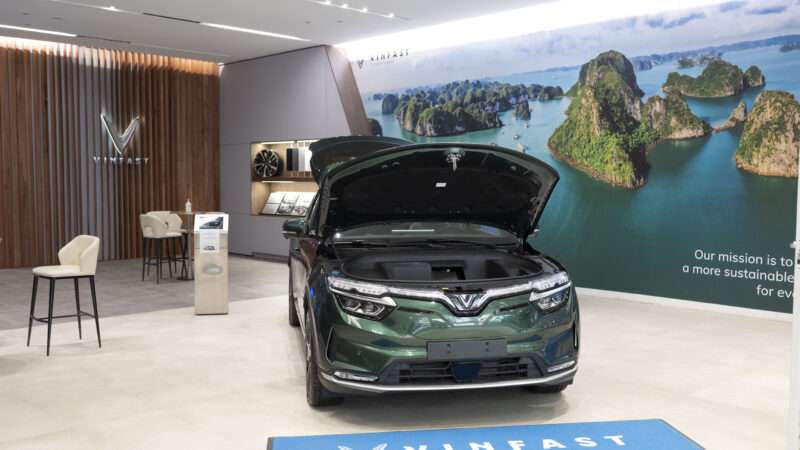
In what is becoming an all too familiar trend, an upstart electric vehicle (E.V.) manufacturer is struggling to get its products to market despite considerable support from taxpayers.
An article in The Wall Street Journal by Jon Emont and Dave Sebastian details "North Carolina's billion-dollar bet on an EV outsider." The outsider in question is VinFast, a Vietnamese electric vehicle company that received incentives totaling $1.2 billion to build its planned $4 billion factory in the Tar Heel State, in a deal announced last year.
Some lauded the deal at the time: President Joe Biden called it "the latest example of my economic strategy at work." CNBC cited the deal when it named North Carolina as America's Top State for Business, complimenting lawmakers in a divided state for "managing to put aside their very deep political divisions to boost business and the economy."
It hasn't been smooth sailing since then. "VinFast lost the equivalent of more than $5.8 billion from 2020 through the end of September this year," Emont and Sebastian recount. "It will need to sell far more cars than it currently does to break even."
Americans have purchased over 1 million E.V.s so far in 2023, but by the end of October, VinFast had barely sold more than 2,000. As of this writing, the company's market cap sits at $15.4 billion—a precipitous drop from its value in late August, when it went public at a valuation of $231.3 billion.
Further, as the Journal article spells out, VinFast's vehicles have received scathing reviews for apparent substandard quality, and it issued a recall on the first 999 units it shipped to the U.S. "because of a software malfunction that the company warned may increase the risk of a crash."
All of this would be par for the course for any automaker, and especially a startup: In 2009, long before it became the world's most valuable car company, Tesla Motors recalled over 75 percent of its Roadsters due to "rear hub flange bolts [that] may be under-torqued and may become loose"—a problem which, if unaddressed, could cause a driver to "lose control of the car, which could lead to a crash."
But VinFast's struggles are especially galling given the amount of state-provided support the company has received. In a truly free market, if VinFast failed and were forced to shut down, only the company's shareholders and creditors would be on the hook; instead, North Carolina's taxpayers would also be left holding the bag. (In fairness, Tesla has also benefited handsomely from public incentives over the years, receiving over $2.8 billion in federal, state, and local subsidies.)
As Reason reported in March, the state is going even further than giving out cash: The North Carolina Department of Transportation's planned roadway improvements benefiting the VinFast site would involve the use of eminent domain to seize 27 homes, five businesses, and Merry Oaks Baptist Church, which has stood since 1888. In July, VinFast offered to donate up to three acres of land to the church from its 2,000-acre parcel and help in its relocation.
Despite its financial setbacks, VinFast has the backing of Vietnam's wealthiest citizen, a billionaire who controls 99 percent of the company's stock, and the automaker's parent company, VinGroup, ended 2022 with over $1 billion in cash on hand. It should stand to reason, then, that the company should be able to foot the bill for its own expansion without relying upon the generosity of North Carolina's taxpayers.
The post North Carolina's Bad Billion-Dollar Bet on a Struggling E.V. Company appeared first on Reason.com.







